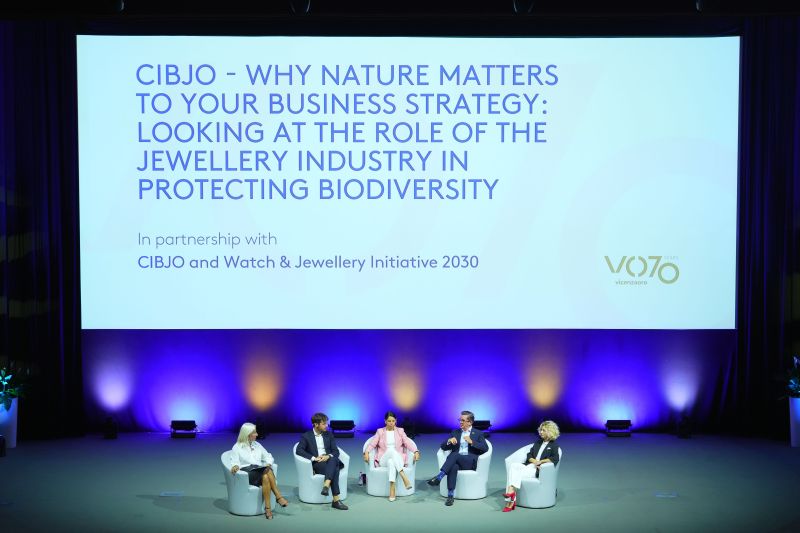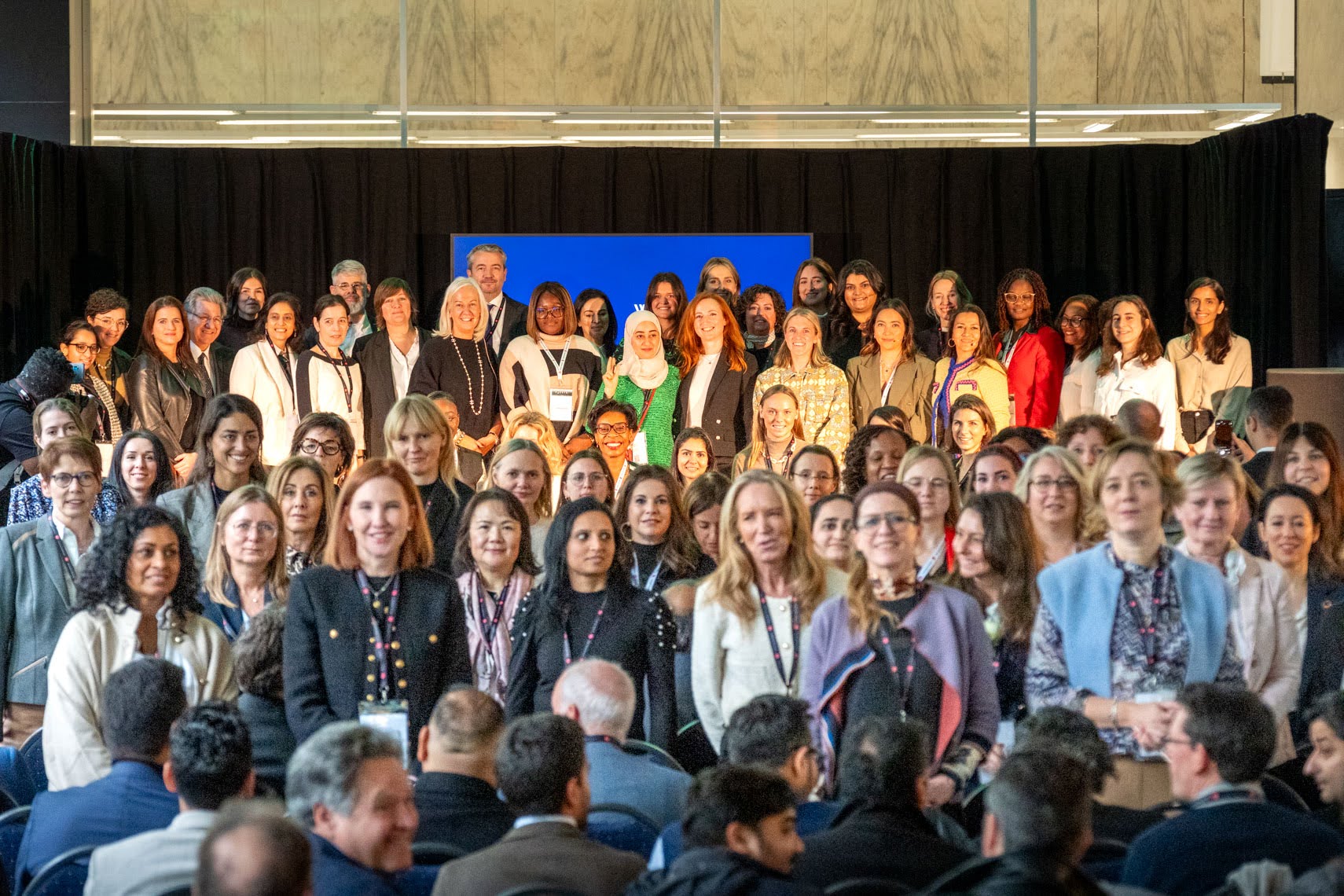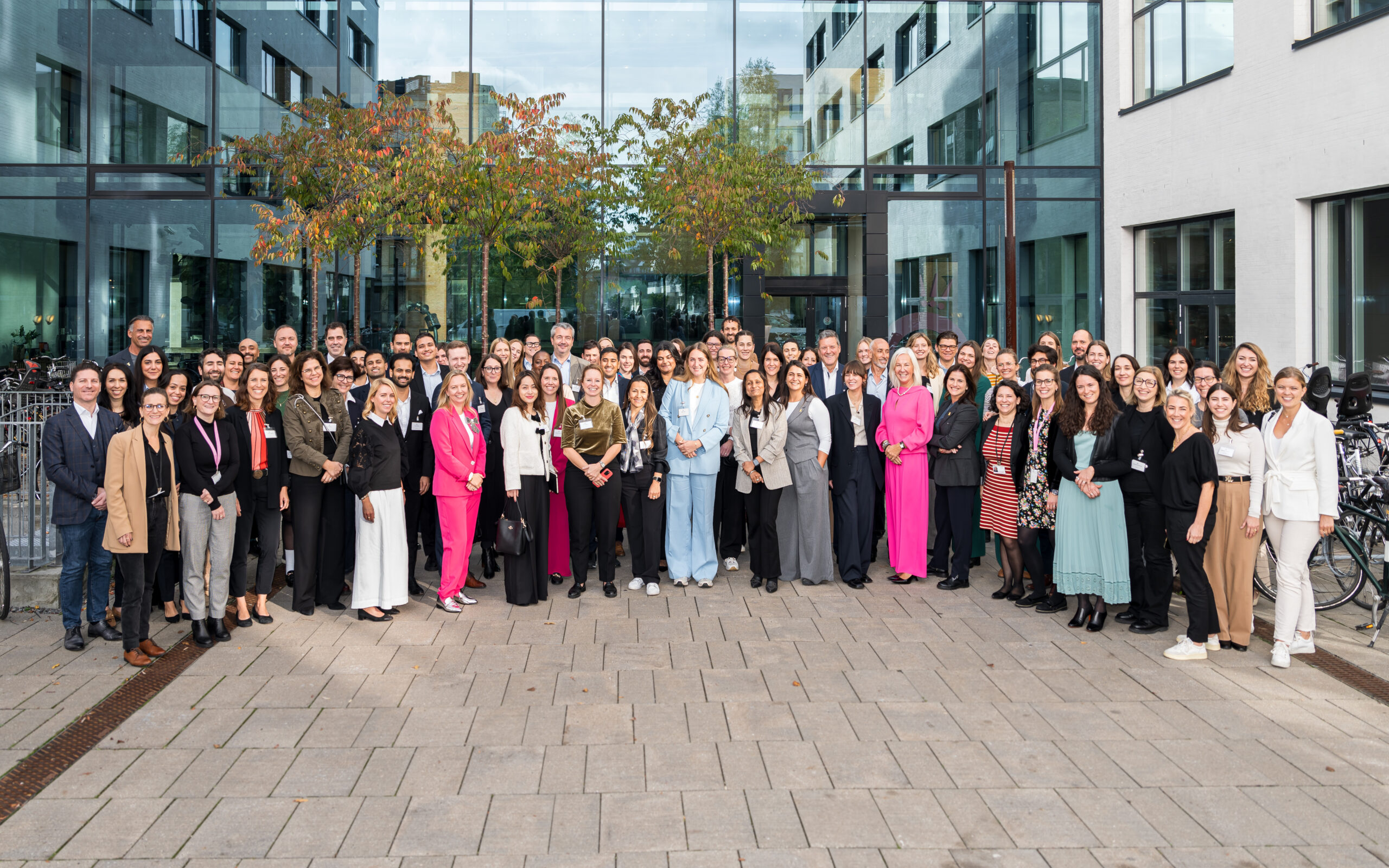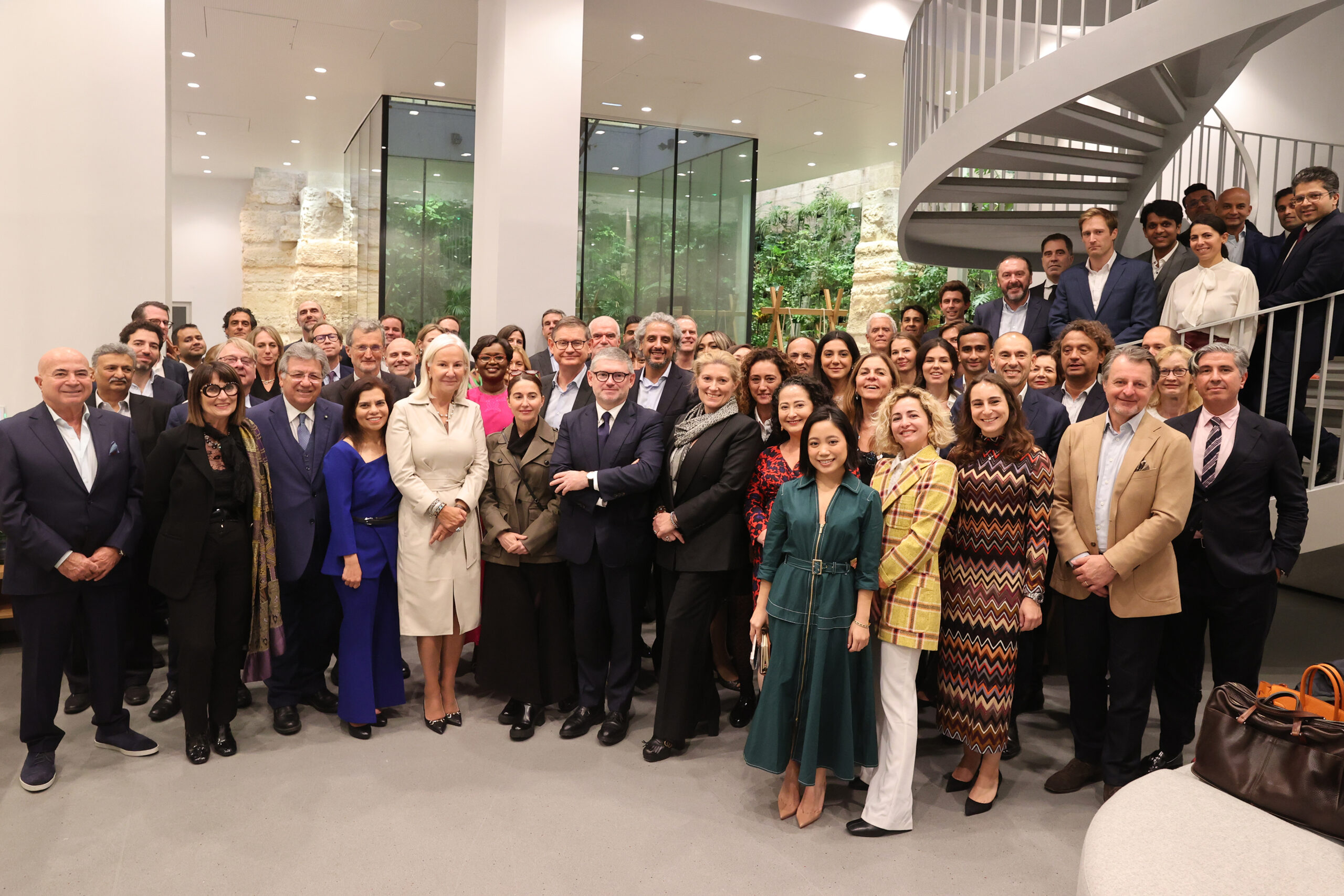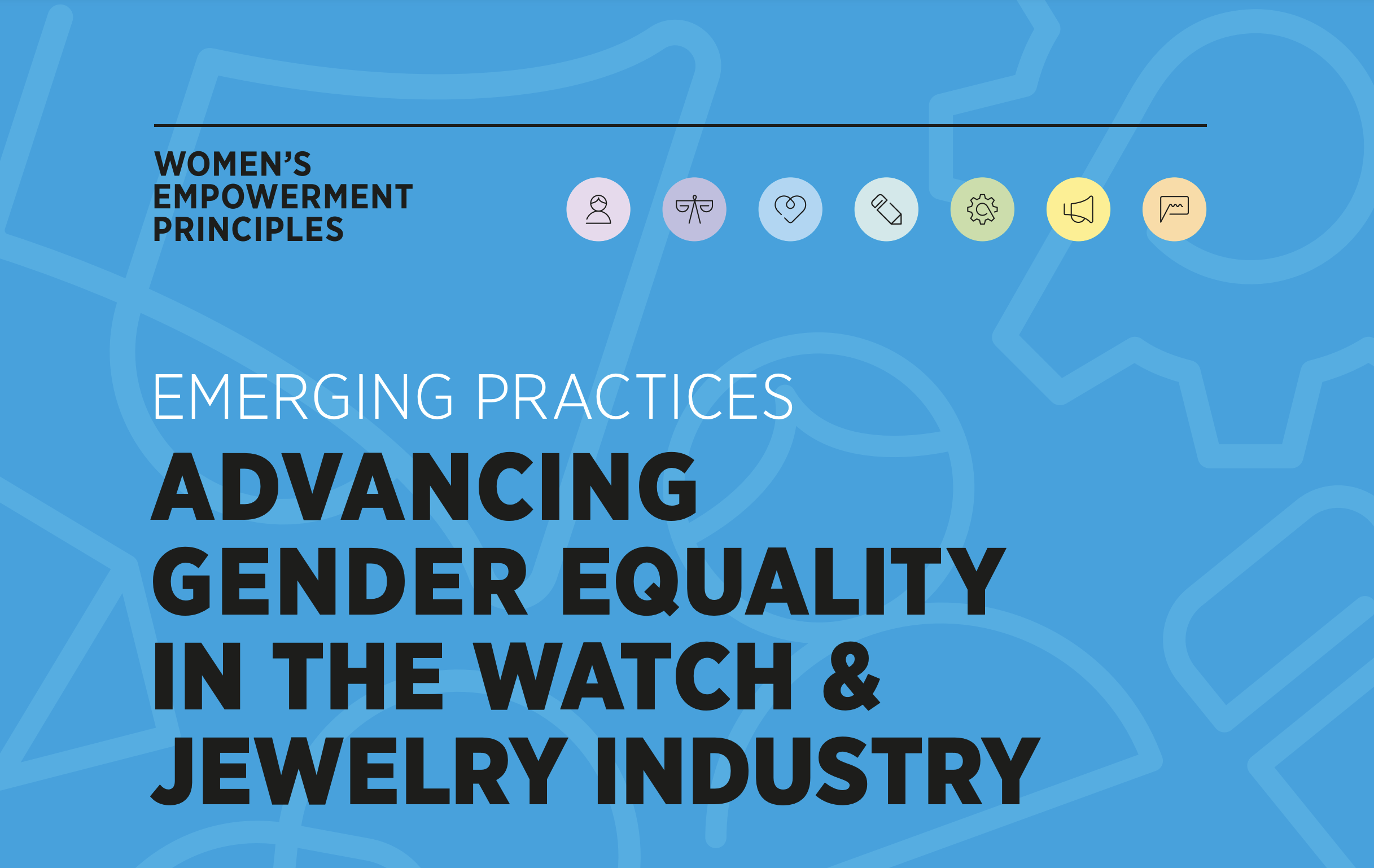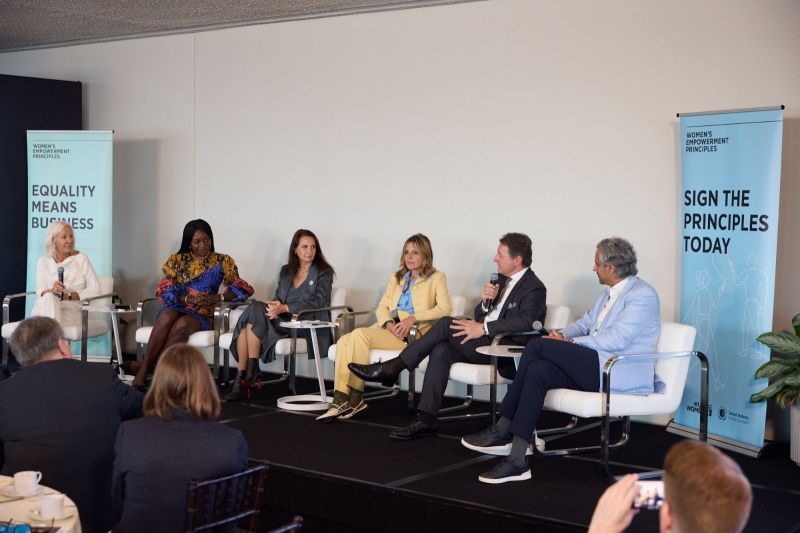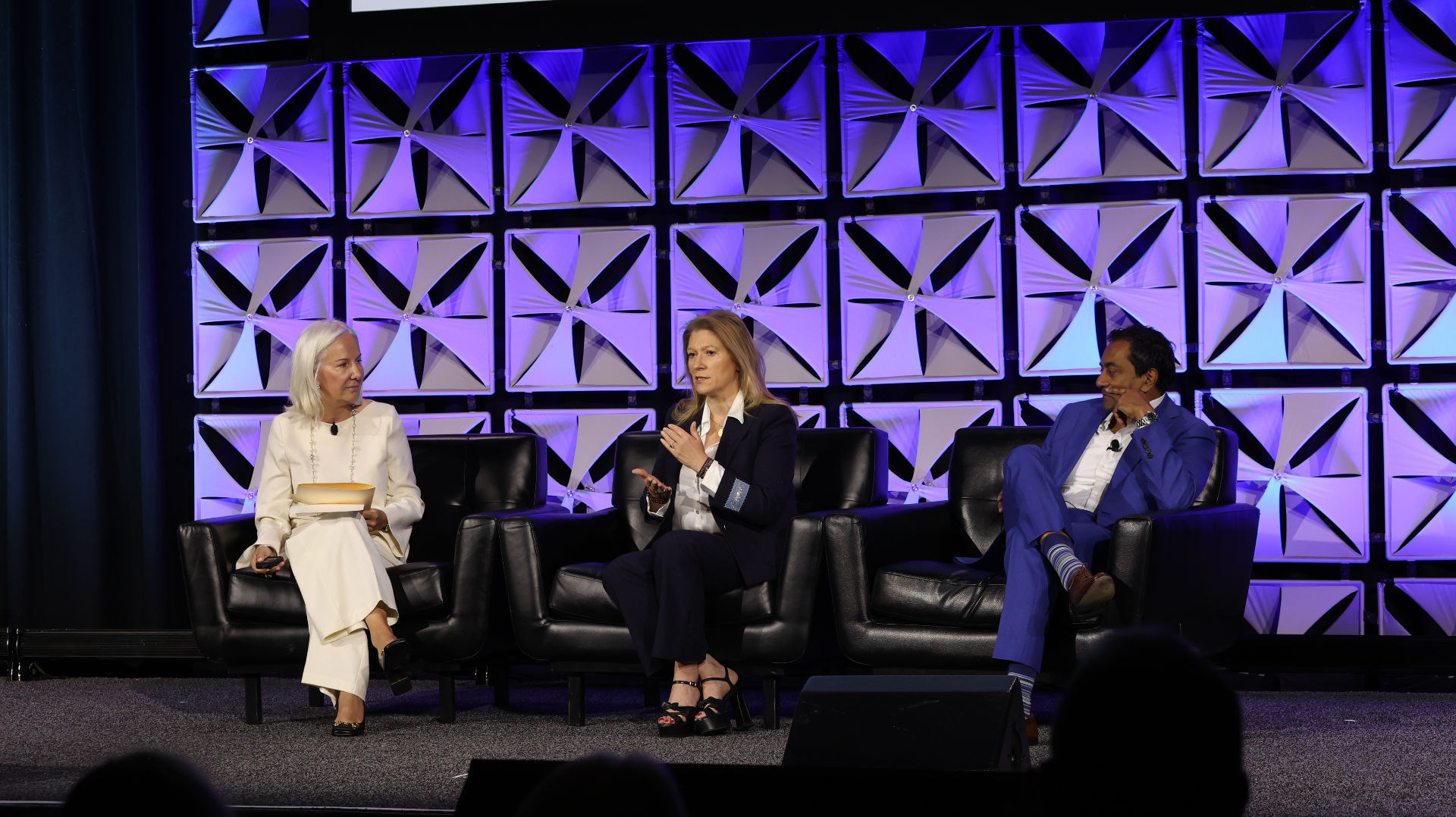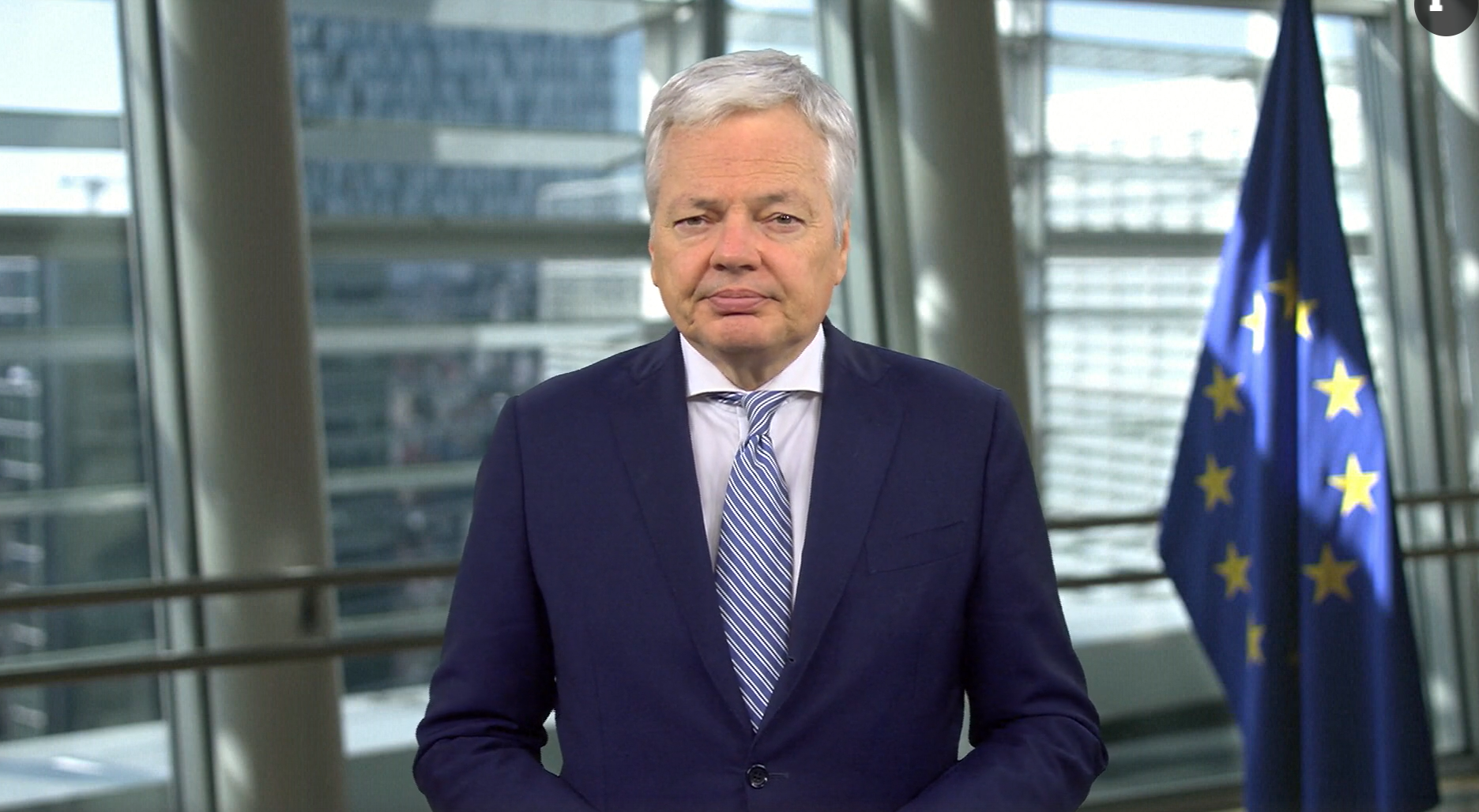We had the privilege of hosting a panel, moderated by WJI2030 Secretary General Iris Maria Alexis Van der Veken and organized by World Jewellery Confederation – CIBJO, on: “Why Climate and Nature Matter to Your Business Strategy.”
As Iris Van der Veken emphasized, “Climate action isn’t just good for the planet; it is good for business. Involvement of private sectors, including SMEs, to address climate change is essential. We are proud to launch the Climate Navigator today for SMEs to help them on their journey. We strongly believe climate action presents opportunities for SMEs to integrate resilience into business, at the very heart of their investment plans and strategies, as they prepare themselves to be future-proof in the evolving regulatory and stakeholder landscape.”
Here’s what our esteemed speakers shared:
Collaborative actions are so needed in our industry because we rely on many shared suppliers with the same challenges and opportunities. To evolve and reduce the impact of the industry, we must collaborate through harmonised platforms like the WJI and CIBJO able to act and drive the change.
Francesca Manfredi, Kering
Integrating climate and nature into your business strategy isn’t just a moral obligation—it’s a competitive advantage. In the precious metals industry, sustainable practices mitigate risks, strengthen resilience, and open up new opportunities in a world that increasingly values environmental responsibility. By prioritising sustainability, we protect not only the planet and human rights, but also the long-term viability and profitability of our business.
Alice Vanni, Italpreziosi
Climate change and biodiversity loss are two sides of the same coin; they’re intertwined through mechanistic links and feedbacks. Action taken to address one could have synergies and trade off effects on the other. Climate change exacerbates risks to biodiversity, while ecosystems and their biodiversity are key for climate mitigation and adaptation.
Davide Tonon, Quantis
Our consideration of a Just Transition needs to recognise the local impacts of decarbonising the economy – particularly those changes that will affect vulnerable people and communities that have limited resources and options. But it shouldn’t be a reason to delay or scale back our ambitions. Rather, to facilitate change and resilience, we need to find and support the development of local capacities, opportunities and resilience. Collaborative initiatives like WJI2030 are therefore very important in not only demonstrating leadership and inspiring companies to commit to act, showing them what is possible, but also in offering concrete guidance and support to those companies taking action.
John Mulligan, World Gold Council
It is clear that integrating climate and nature into business strategy isn’t just good ethics—it’s smart business!

